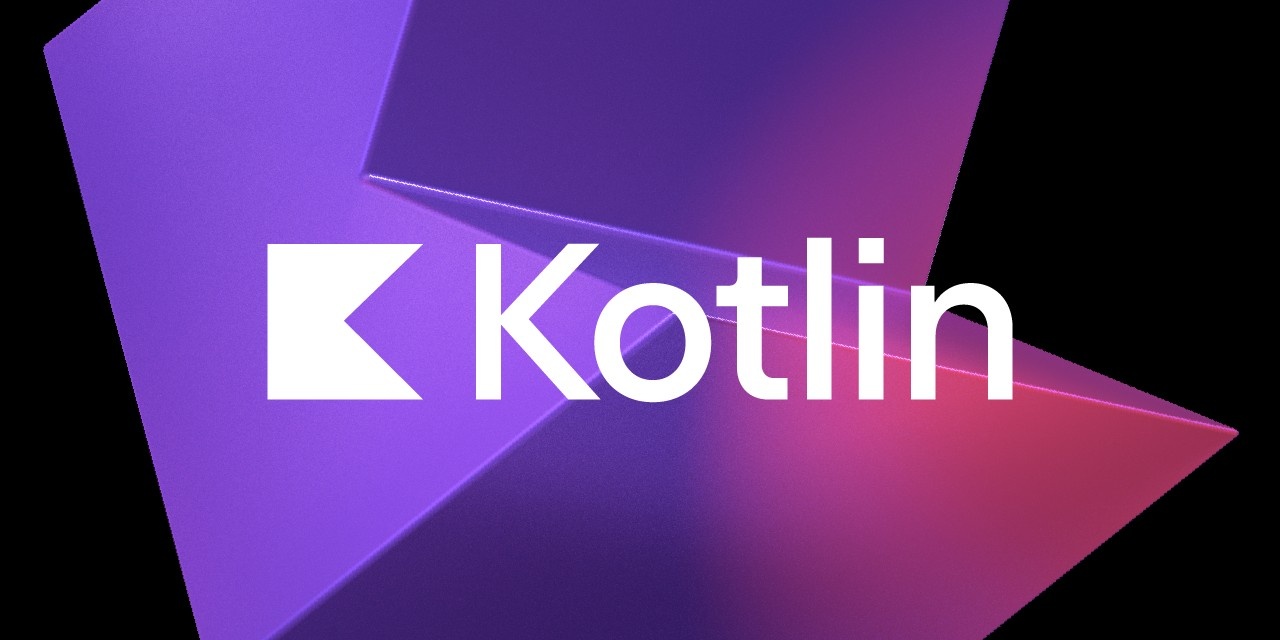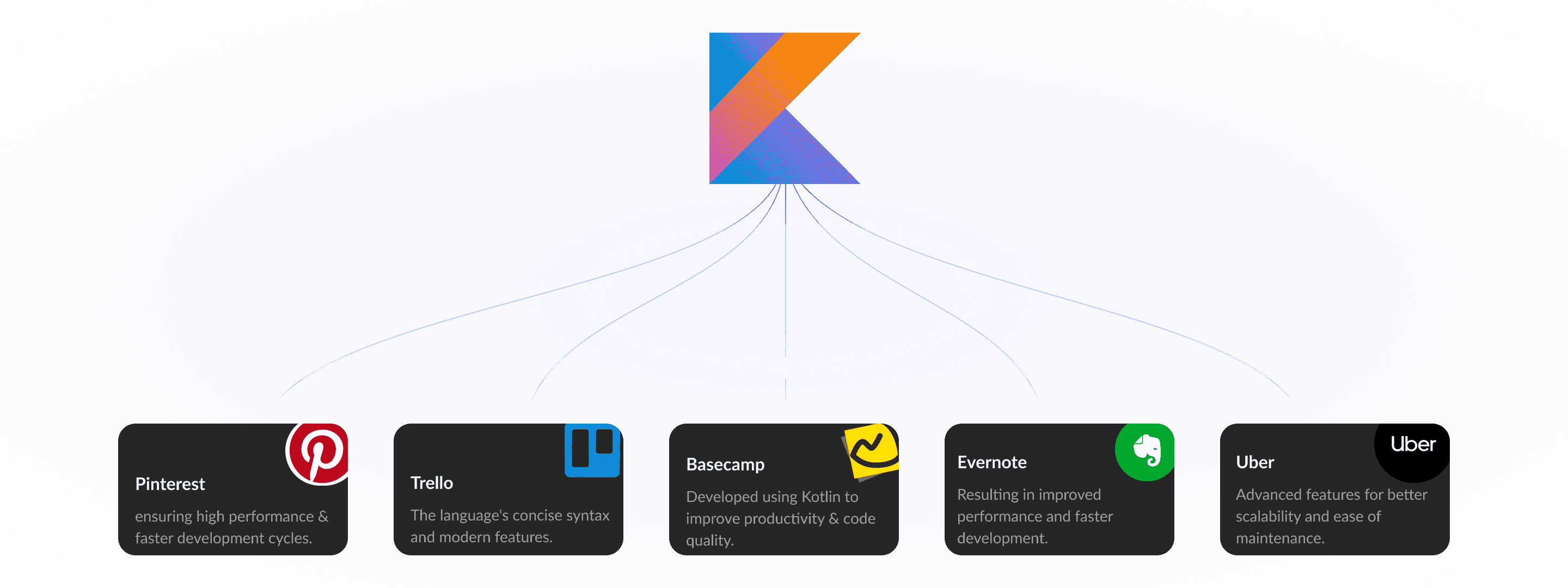Kotlin is a modern, statically-typed programming language developed by JetBrains and officially adopted by Google for Android development in 2017. Kotlin runs on the Java Virtual Machine (JVM) and is fully interoperable with Java, making it a great choice for building Android apps.

Kotlin’s simple syntax, powerful features, and ease of use result in increased developer productivity. By reducing the boilerplate code and simplifying common programming tasks, Kotlin allows developers to focus on what really matters—creating a great user experience and building rich Android apps. This, in turn, leads to faster development cycles and quicker time-to-market for Android applications.
Kotlin is fully supported by Google for Android development, meaning you can take full advantage of all Android APIs, libraries, and frameworks. It integrates seamlessly with popular Android components like Jetpack, Firebase, and Google Play Services, providing developers with all the tools needed to create robust, feature-rich applications.
Kotlin’s coroutines provide a simple and effective way to handle asynchronous programming and parallel tasks in Android apps. Coroutines allow developers to write asynchronous code in a sequential manner, making it easier to handle tasks like network calls, database operations, and file I/O without blocking the main thread. This results in a more responsive app and better user experience.
Since Kotlin is fully interoperable with Java, you can continue to use your existing Java libraries and frameworks in Kotlin-based Android projects. Whether you're using third-party libraries or legacy Java code, you can call Java code directly from Kotlin, making the transition to Kotlin easy without needing to completely rewrite your entire app.
Kotlin brings modern programming language features, such as:
Data classes: For creating classes that hold data without the need to write boilerplate code like getters, setters, or constructors.
Smart casting: Automatically casts variables when the type is checked, reducing the need for explicit type casting.
Sealed classes: For representing restricted class hierarchies, providing better control over type hierarchies and enabling more flexible handling of complex data.
Kotlin is not just limited to Android development. With Kotlin Multiplatform, you can share code across multiple platforms, including iOS, macOS, and web applications. This makes it easier to maintain cross-platform applications and reduces development effort for apps targeting multiple platforms. You can use the same Kotlin codebase for business logic while customizing the platform-specific UI for Android and iOS.
Prevents NullPointerExceptions with safe handling of nullable types.
Write cleaner and more readable code with less boilerplate.
Simplifies asynchronous programming for smoother user experiences.
Seamlessly integrates with Java and existing Android libraries.
Native support for Kotlin in the official Android IDE.
Use Kotlin for Android, iOS, and backend development.

The Tech Product Studio




















